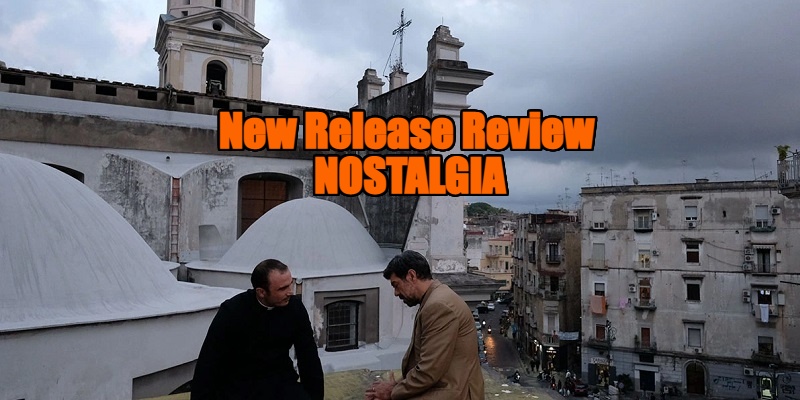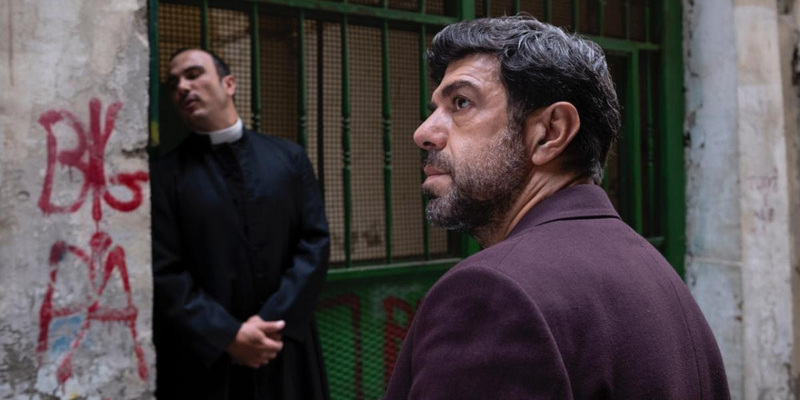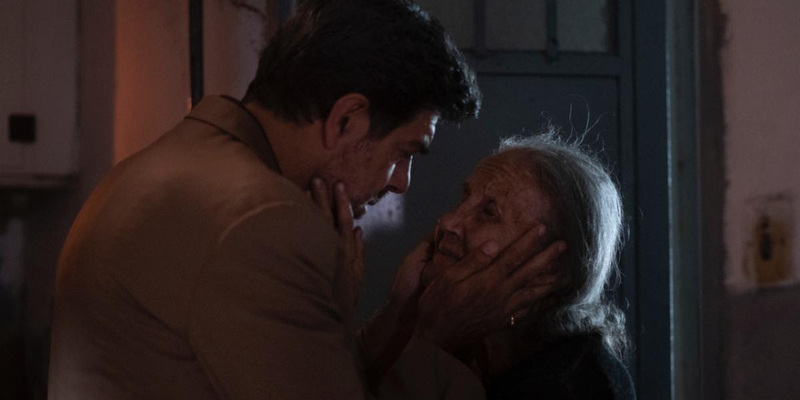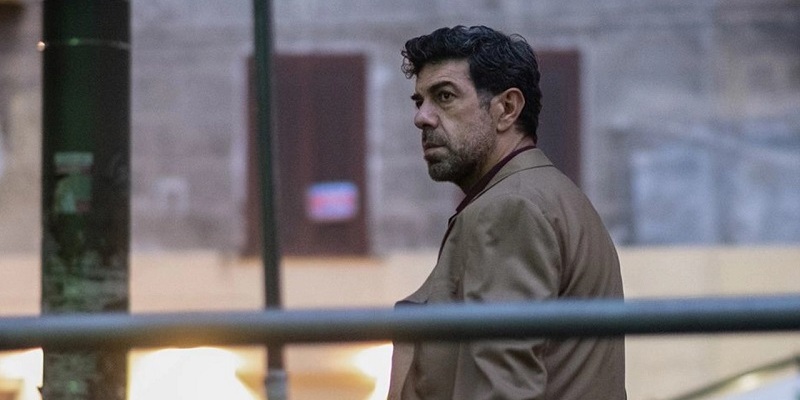
Review by
Eric Hillis
Directed by: Mario Martone
Starring: Pierfrancesco Favino, Francesco Di Leva, Tommaso Ragno, Aurora Quattrocchi, Sofia Essaidi

A candidate for the most over-used premise in movies over the past
couple of decades is that of a protagonist returning to their hometown
and wrestling with a past they left behind. You see it played straight
in countless American indies. You see it played for laughs in almost
every Hallmark Christmas movie. It fuels many a British gangster movie,
with hard men returning to "the manor" after time in jail. It's recently
begun to crop up as a staple of queer cinema, with adult gay characters
returning to their childhood home and attempting to reconcile with a
previously disapproving family.
Adapted from a novel by Ermanno Rea, Mario Martone's
Nostalgia is the latest drama to adopt this set-up. In
many ways it's a mixture of the straight drama, the gangster movie and
possibly even the queer cinema examples listed above. What makes it
stand out from its crowded field is its explicit sense of place, with
the Naples neighbourhood of Rione Sanita brought vividly to life.

It's to this beaten down but defiant area that Felice (Pierfrancesco Favino) returns after a 40-year absence, most of which has been spent in
Cairo where he has become a successful businessman with a beautiful
Egyptian wife (Sofia Essaidi). On his return, Felice is surprised
to find that little has changed in the neighbourhood. On one hand this
brings back good memories of his youth, but on the other it reminds him
of why he left.
Through flashbacks we learn of the teenage Felice's wild youth.
Influenced by a tough, charismatic friend, Oreste (played as an adult by
Tommaso Ragno), Felice became involved in petty crime. It's
ultimately revealed that a more serious crime led to Felice fleeing his
home for Africa. In the intervening years Felice has converted to Islam,
but he can't shake his Catholic guilt and feels compelled to meet with
Oreste to explain why he abandoned him.

When Felice unofficially confesses his past sins to the local priest,
Don Luigi (Francesco Di Leva), the cleric blows his top in anger
that Felice has compassion for Oreste, who now controls all the criminal
activity in the neighbourhood and has earned the nickname "Badman." But
the priest sees Felice's interest as a way of exposing Oreste and
manipulates the returning man into making his presence known, placing
Felice in potential danger. Don Luigi also views Felice as something of
a special project, coaxing him into drinking wine in the hopes it might
lure him back into the Christian fold.
Felice grows paranoid that Oreste may want him dead to maintain the
silence he's maintained through his absence over the last four decades.
That silence would seem to refer to the crime the two teenagers were
involved in, but flashbacks in which the boys frolic naked in the sea
and hold tightly onto one another while riding Felice's moped imply they
may have a secret of another kind that Oreste doesn't want getting out
(I have to admit that this may not be the intention of Martone
whatsoever, that it's simply a case of an emotionally stunted Irish
critic reading too much into the comfortable affections of two Italian
men).
With its triangle of gangster villain, reformed criminal protagonist
and streetwise priest middleman, Nostalgia has a central
dynamic straight out of a 1930s Warner Bros gangster picture. But
there's no rat-a-tat dialogue or gunplay here, rather a slow burn drama
in which a man slowly seals his fate by tempting it. The film appears to
owe a minor debt to
Andrei Tarkovsky's 1983 Italian-set drama of the same name, with a sequence in which Felice imagines his wife as the African
princess whose visage he sees painted in a catacomb (Tarkovsky's
protagonist has a similar experience with the Virgin Mary). Scenes in
which Felice wanders his neighbourhood have an Antonioni-esque quality
at times, with Felice made to look inconsequential by the surrounding
architecture.

Oreste is portrayed as a Colonel Kurtz figure, or a less charismatic
Harry Lime, spoken about in hushed tones by a populace that lives in
fear of his power. But in giving us glimpses of Oreste before his
eventual encounter with Felice, Martone demythologises the figure,
showing him as a crumbling, aging man with a haunted look in his eyes,
reflected in the disdainful way Don Luigi speaks of him. By the time
Felice has journeyed up the metaphorical river and into Oreste's heart
of darkness, we understand why Felice doesn't fear Oreste the way
everyone else seems to. After this pivotal meeting, much of the
remaining film becomes redundant, leading to a predictable ending that
some might view as cynical for cynicism's sake.
Along with Felice, Oreste and Don Luigi, the fourth wheel in this
narrative FIAT is the neighbourhood of Rione Sanita. By the end of the
movie you feel as if you know every alleyway in this place. Martone uses
its geography, with its narrow streets and moped traffic to create the
paranoid sense that trouble can emerge from any doorway or from around
any corner at any time. But we also understand why Felice feels at home
in this vibrant place where nobody is a stranger and a plate of
meatballs and pasta awaits a visitor on every kitchen table. Felice may
be in danger here, but it's where he belongs.


